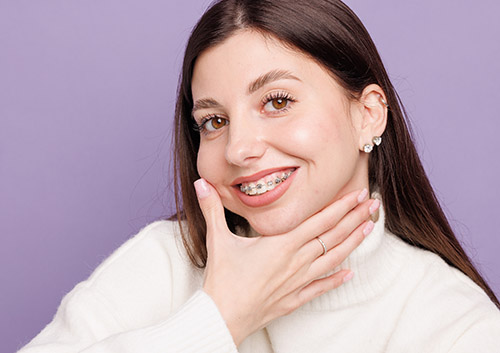Safety of Dental X-Ray Radiation
July 23rd, 2025

We all want to live our healthiest lives. We know that part of keeping ourselves healthy is regular visits to our High Point or Greensboro, NC office for checkups and necessary dental work. And that dental work might require an X-ray. Should the amount of radiation in an X-ray concern us?
First, it is helpful to know that the radiation you are exposed to from a dental X-ray is very small. A set of most bitewing X-rays, for example, produces an amount of exposure about equal to the amount of background radiation we get from our normal surroundings in a typical day. We also take care to minimize your exposure even further by using specially designed equipment and protective shielding, and taking only necessary X-rays. If your child is very young, if you are pregnant, or if you have other health concerns, talk to us about the advisability of X-rays and whether they are essential to treatment.
Second, much of our careful general examination will be done visually. Dr. Ryan Hinckley can check for cavities and other problems and assess tooth and gum health. But sometimes, there are conditions which can’t be detected without an X-ray.
- Decay that isn’t visible in an oral exam—if a small cavity develops between teeth, or is hidden underneath a filling, an X-ray will catch it before more damage can take place.
- Infection—An X-ray will reveal infections such as abscesses that can damage both bone and tooth, and gum disease that has harmed bone and connective tissue.
- Orthodontic and periodontal issues—We might need an X-ray to determine the spacing and development of your child’s incoming teeth and maturing jaw structure, to properly create braces for adults or children, or to place an implant within the jawbone.
- If you are a new patient, it is helpful to have complete X-rays taken as a baseline of your current dental health and previous dental work. This baseline allows us to track tooth and jaw development, if necessary, and to evaluate any future changes that might be a concern. (If you have had X-rays taken in another office, we can help you have them transferred so we have a background of your dental history.)
Even though the radiation from a dental X-ray is minimal, be assured that we will never request any unnecessary procedure. When we recommend an X-ray, we do so to make sure there is no decay or infection threatening the health of your gums and teeth, and that we have the essential knowledge we need to treat any dental, periodontal, or orthodontic condition. Because we all want to live our healthiest lives—and part of that healthy life is both active and proactive dental care.



